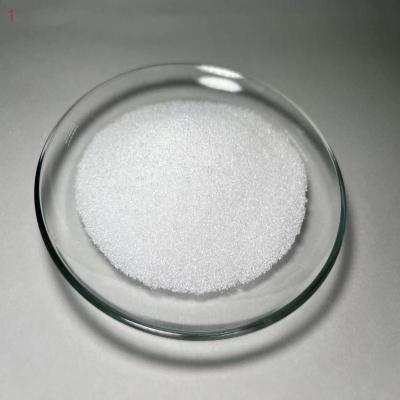-
Categories
-
Pharmaceutical Intermediates
-
Active Pharmaceutical Ingredients
-
Food Additives
- Industrial Coatings
- Agrochemicals
- Dyes and Pigments
- Surfactant
- Flavors and Fragrances
- Chemical Reagents
- Catalyst and Auxiliary
- Natural Products
- Inorganic Chemistry
-
Organic Chemistry
-
Biochemical Engineering
- Analytical Chemistry
-
Cosmetic Ingredient
- Water Treatment Chemical
-
Pharmaceutical Intermediates
Promotion
ECHEMI Mall
Wholesale
Weekly Price
Exhibition
News
-
Trade Service
[ Focus on Chemical Machinery Equipment Network ] Industrial automation is a trend in which automatic control and automatic adjustment devices are widely used in industrial production to replace manual operation of machines and machine systems for processing and production.
With the development of intelligent manufacturing, the level of human-computer interaction, automation, and intelligent applications continues to improve, and the requirements for equipment manufacturing technology and product quality are also getting higher and higher.
In addition, the application fields of industrial automation control products continue to expand, thus driving Demand for industrial products.
Chemical machinery and equipment network hotspots pay attention to chemical machinery and equipmentWith the development of intelligent manufacturing, the level of human-computer interaction, automation, and intelligent applications continues to improve, and the requirements for equipment manufacturing technology and product quality are also getting higher and higher.
In addition, the application fields of industrial automation control products continue to expand, thus driving Demand for industrial products.
Industrial automation is a prominent business, and it is moving in a new direction.
The increasing demand for variety, customized products, and product differentiation makes it difficult for manufacturers to produce parts in batches.
However, small batches and mass production will bring huge costs to the organization.
Enterprises can explore new technologies and new opportunities in the field of industrial automation.
This opportunity is microelectromechanical systems (MEMS).
After mechatronics, it is the era of micro mechatronics.
The increasing demand for variety, customized products, and product differentiation makes it difficult for manufacturers to produce parts in batches.
However, small batches and mass production will bring huge costs to the organization.
Enterprises can explore new technologies and new opportunities in the field of industrial automation.
This opportunity is microelectromechanical systems (MEMS).
After mechatronics, it is the era of micro mechatronics.
MEMS embodies a unique semiconductor technology, which includes moving components and electronic components on a single chip.
It is committed to integrating integrated circuit (IC) manufacturing technologies (such as complementary metal oxide semiconductor (CMOS), BiCMOS (bipolar junction transistor) Integration with CMOS technology) combined with innovative silicon micromachining 444.
Electronic componentIt is committed to integrating integrated circuit (IC) manufacturing technologies (such as complementary metal oxide semiconductor (CMOS), BiCMOS (bipolar junction transistor) Integration with CMOS technology) combined with innovative silicon micromachining 444.
The reliability, scalability, sensitivity and cost-effective solutions provided by MEMS technology provide a large number of MEMS application opportunities in the field of industrial automation.
In the era of industrial micro-mechatronics, MEMS technology is particularly beneficial to industrial robots, because the technology can be applied to tactile sensors , navigation or proximity sensors.
Due to the trend of lower commercial feasibility and the deep-rooted industrial field of certain non-MEMS proximity sensing technologies, research on the application of MEMS technology to manufacturing proximity or position sensors is limited.
However, MEMS technology allows the development or production of low-cost tactile sensors, enabling robots to obtain sensory information in order to make decisions and perform actions in a more versatile and autonomous way.
The trend of miniaturization has brought opportunities for the application of multiple sensors in robotics, manufacturing processes, process control, biotechnology and life sciences.
sensor Due to the trend of lower commercial feasibility and the deep-rooted industrial field of certain non-MEMS proximity sensing technologies, research on the application of MEMS technology to manufacturing proximity or position sensors is limited.
However, MEMS technology allows the development or production of low-cost tactile sensors, enabling robots to obtain sensory information in order to make decisions and perform actions in a more versatile and autonomous way.
The trend of miniaturization has brought opportunities for the application of multiple sensors in robotics, manufacturing processes, process control, biotechnology and life sciences.
Key technology drivers of MEMS
Key technology drivers of MEMS Cost: The main driving factor for the initial adoption of MEMS technology is cost.
MEMS technology has great potential to reduce costs because it can be easily manufactured in batches.
For example, analog equipment companies have standardized their manufacturing methods and can ship millions of accelerometers each year.
Compared with traditional sensor manufacturing, the process is simplified and requires less labor.
MEMS technology has great potential to reduce costs because it can be easily manufactured in batches.
For example, analog equipment companies have standardized their manufacturing methods and can ship millions of accelerometers each year.
Compared with traditional sensor manufacturing, the process is simplified and requires less labor.
Multi-user MEMS process (MUMPS) is a standardized surface micromachining technology, which is one of the cheap manufacturing technologies that use polysilicon in MEMSCAP to manufacture MEMS devices.
Silicon is the main material for manufacturing MEMS devices.
It can make MEMS manufacturing very cost-effective and therefore very profitable.
Silicon is the main material for manufacturing MEMS devices.
It can make MEMS manufacturing very cost-effective and therefore very profitable.
Increased sensitivity: MEMS sensors are more sensitive than traditional sensors.
This is the main reason why MEMS sensors are superior to traditional sensors, especially in high-precision and high-precision applications.
This is the main reason why MEMS sensors are superior to traditional sensors, especially in high-precision and high-precision applications.
Small size advantage: compactness is the mainstream trend in the electronic or mechanical equipment market.
MEMS technology provides the ability to fill more MEMS components in a small area, which can reduce the overall size of specific products.
MEMS components with multiple functions can enhance the capabilities of products, such as industrial robots.
MEMS technology provides the ability to fill more MEMS components in a small area, which can reduce the overall size of specific products.
MEMS components with multiple functions can enhance the capabilities of products, such as industrial robots.
MEMS sensors infiltrate a wide range of applications to promote the development of industrial automation
MEMS sensors infiltrate a wide range of applications to promote the development of industrial automation Industrial automation is a mature market with mature processes.
It is also price-sensitive in the higher volume market than commodity-type sensors; and most processes are a one-time investment.
At present, the penetration of MEMS-based sensor technology in this field is often limited to process monitoring applications, industrial safety, mechanical monitoring, and it also has a certain degree of application in assembly line manufacturing applications.
However, as the industrial field develops towards intelligent, distributed and wireless monitoring, MEMS technology may play an increasingly important role in this field.
It is also price-sensitive in the higher volume market than commodity-type sensors; and most processes are a one-time investment.
At present, the penetration of MEMS-based sensor technology in this field is often limited to process monitoring applications, industrial safety, mechanical monitoring, and it also has a certain degree of application in assembly line manufacturing applications.
However, as the industrial field develops towards intelligent, distributed and wireless monitoring, MEMS technology may play an increasingly important role in this field.
The trend of miniaturization and micro-electromechanical integration supported by MEMS is driving the development of components, equipment, systems, and subsystems for industrial applications.
However, concentrated research and development efforts to solve various technical and scientific problems will help turn in other fields and promote the development of industrial automation in the next few years.
However, concentrated research and development efforts to solve various technical and scientific problems will help turn in other fields and promote the development of industrial automation in the next few years.
Original title: MEMS sensors penetrate into a wide range of applications to promote the development of industrial automation







